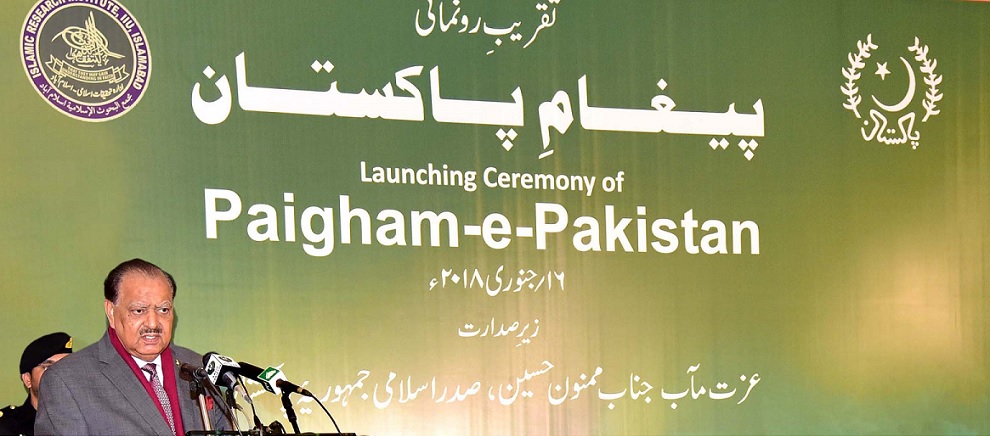
It’s been almost 14 years since Pakistan plunged itself into the global war against terrorism, and has suffered by now financial losses worth over $120 billion. But even the biggest sacrifice Pakistan rendered in endeavors to eradicate terrorism is the human losses of more than 70,000 people, making it unprecedented in the World History in terms of fighting the menace of terrorism.
But despite rendering sacrifices at such mega scale, Pakistan has still been struggling to overcome it with multiple approaches from use of force to asserting its counter-terrorism narrative in the society.
Though Pakistan launched a couple of full-fledged military Operations such as Zarb-e-Azb and Radd-ul-Fasaad as part of efforts to address challenges of terrorism and extremism but having deep-rooted religious society, the Country had also to deal with some Islamic misinterpretation which had already wrongly pervaded young minds.
The Islamic Concept of Jihad (Islamic Holy War) and Shariah (Islamic Laws) have probably been the biggest victims of misinterpretation in the Muslim World including in Pakistan which eventually led to waging an unwarranted war by the non-state actors.
Download: Paigham-e-Pakistan (English)
Therefore in a bid to counter such un-Islamic practices; especially declaring Jihad without State’s approval and enforcing Shariah with force; the government of Pakistan on January 19, 2018 issued a national narrative on extremism and terrorism in the light of Holy Quran and Hadith, and duly signed by more than 1800 religious scholars from all Schools of Thoughts in the Country.
The narrative, titled ‘Paigham-e-Pakistan’ consists of 22-point Fatwa (religious decree), declares armed struggle against the Country, its government or armed forces illegal.
It also maintains that if someone, except the government, takes arms to enforce Islamic values in the society it will amount to Fasaad-fil-Arz; and therefore not permissible. The 121-page document also declares suicide attacks un-Islamic and a grave sin.
